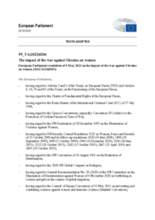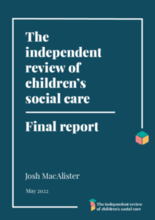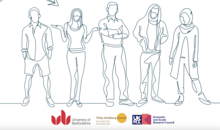Displaying 1101 - 1110 of 10391
There were an estimated 100,000 children in Ukraine’s institutions before Russia’s war on Ukraine which began in February 2022.
The European Parliament adopted a resolution on the impact of the war against Ukraine on women on 5 May 2022.
Disability Rights International (DRI) published these recommendations in response to a visit to Ukraine’s institutions for children with disabilities in late April 2022. DRI visited three facilities for children aged six to adult, and one “baby” home for children from birth to age six.
DRI found that Ukraine’s children with disabilities with the greatest support needs are living in atrocious conditions – entirely overlooked by major international relief agencies and receiving little support from abroad.
The Task Force on Foster Care of the Transforming Children's Care Global Collaborative Platform held the second spotlight webinar series on identifying foster carers on 5 May 2022.
Individual studies suggest most children and youth in residential care centres (RCCs) have living parents, and parental death is not the primary antecedent to placement in residential care. The goal of the present review was to examine the literature to better understand the primary antecedents to placement in RCCs overall. One hundred thirty-two studies, including 60,683 children in 47 nations meet eligibility criteria for inclusion for the overarching review of antecedents of placement.
This report is a culmination of an independent review of the UK's care system in order to build recommendations for how the system can be improved and to continue feeding in a wide range of views. The work and outcomes of the review were guided by the views of people that have lived experience of the children’s social care system in the UK.
This briefing paper draws on data and findings from the Insights into the World of Privatized Faith-Based Residential Care Facilities in Myanmar research report.
This briefing paper draws on data and findings from the Insights into the World of Privatized Faith-Based Residential Care Facilities in Myanmar research report.
The Care Leavers, COVID-19 and Transition from Care (CCTC) study explored how COVID-19 impacted on care leavers’ lives and their pathways out of care; examining where young people went, what services and support they received, and how young people got on.
This study focused on Israeli care leavers a decade after leaving care and explored various factors associated with satisfaction with both intimate relationships and parenthood.







